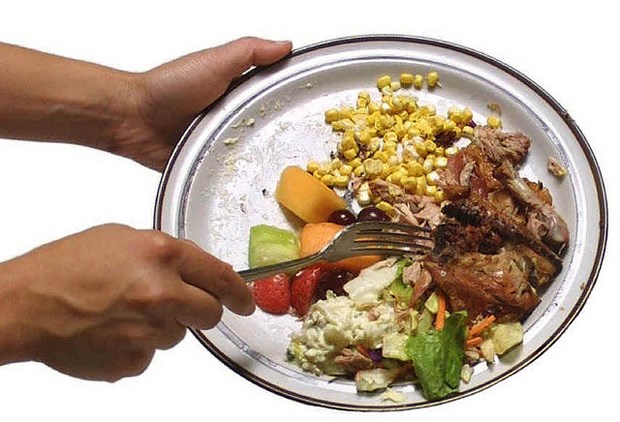According to the American Heritage Dictionary the phrase âwaste not, want notâ was first recorded in 1772, but was derived from an earlier version: âwilful waste makes woeful wantâ recorded in 1576. In todayâs world of credit cards, debit cards, and lines of credit, these terms take on a whole new urgency as bills roll in from our holiday spending sprees. One of the most easily influenced home expenses is our food budgets and a few tips in reducing food waste, and thus saving money, is most appropriate in a food column.
What if I told you that you could have free vegetable broth? Currently whenever you work with vegetables (onions, carrots, celery, etc.) the end trimmings are going into the compost, garburator or garbage. Dedicate a large food storage bag in the freezer for these end cuts and peelings instead and keep adding to this frozen mix until the bag is full. Empty the contents into a large pot, cover with cold water to the top level of the vegetables, bring to a boil, and then turn the heat to low and simmer for at least 1 hour uncovered. Strain and season to taste with salt & pepper and you have vegetable stock from ingredients that would have previously been discarded. A great addition to this bag would be fresh herb stems. There is a ton of flavour in the inedible woody stems that will create complexity in your homemade vegetable stock.
Make a soup from scratch with your broth or pour it into ice cube trays and create a second freezer bag of cubed stock: this is perfect when you need a small amount of broth to make or finish a sauce.
The rinds from hard cheeses also tend to see the garbage bin as their demise, but they can, however, bring extra essence to soups. For example, whenever making Minestrone (Italian vegetable soup) we always toss a chunk of parmesan rind into the broth. At the end of the cooking process, the rind is simply removed and discarded.
Leftover bacon fat, although not particularly healthy, can also be put to use in the kitchen. Moderation of this integrated into your diet needs to be practiced here, but on occasion a warm bacon dressing on spinach greens is amazingly delicious. Add the following to the rendered bacon fat from a half pound (227g) of bacon, but make sure that the bacon fat is not too hot or the fat will splatter when you add these ingredients: 3 tablespoons apple cider vinegar, 1 to 2 tablespoons maple syrup, 2 teaspoons Dijon or grainy mustard, one half teaspoon dried thyme leaves, and a sprinkle of fresh cracked pepper. Heat over medium heat, while stirring together, until very warm, and then serve immediately.
Basically what I want you to become is a conscientious cook. Pay attention to everything that is being discarded in the kitchen and attempt to find new and innovative uses for them. The Internet makes a great resource when investigating ideas and answers any questions you may have about food safety, which also needs to be emphasized here.ÌýÌýÌýÌý
Dear Chef Dez:
I have a lot of fresh rosemary. Can I freeze it to keep it fresh?
Wilma S.
Calgary, AB
Ìý
Dear Wilma,
Yes, freezing is probably the best option to preserve the essential oils but try to use it up within 3 to 6 months if possible. Remove the herb from the woody stems and freeze them both, but separately from each other. The thin stems are a great addition to making vegetable broth, but the thicker, hardier stems make great flavour infused skewers for cubes of chicken breast⦠just be sure to soak them in water for a few hours first, to help prevent them from burning up on the grill.
Chef Dez is a Chef, Writer, & Host. Visit him at



